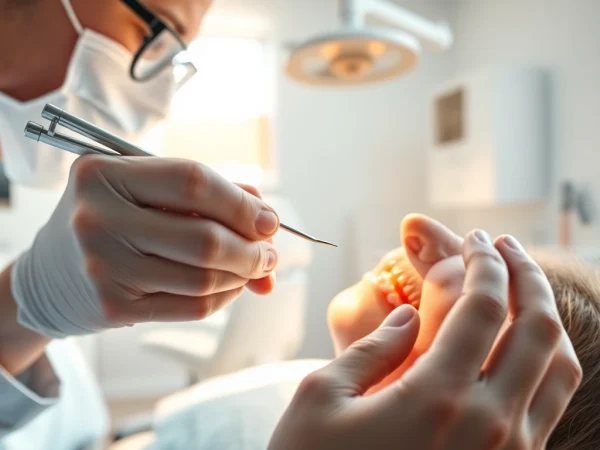Understanding Peptide Therapy: Benefits, Applications, and Considerations
What is Peptide Therapy?
Peptide Therapy is a cutting-edge medical modality that utilizes small chains of amino acids, known as peptides, to stimulate various physiological processes in the body. These naturally occurring compounds play crucial roles in biological functions such as hormone regulation, immune response, and cellular communication. By complementing or enhancing the body’s natural peptides, this therapy aims to restore balance and promote overall well-being.
The significance of peptides in medical treatments cannot be overstated. They have gained attention for their potential applications in addressing a wide range of health concerns from anti-aging to metabolic management, and even athletic recovery. Peptide Therapy represents an innovative approach to harnessing the power of these molecules effectively. For more information on how this treatment can fit into a holistic health strategy, you can explore Peptide Therapy.
The Science Behind Peptides
Peptides are short chains of amino acids linked together by peptide bonds. These molecules are essential for various bodily functions, acting as signaling molecules that facilitate communication between cells. Naturally occurring peptides can be classified into two categories: endogenous, which are produced within the body, and exogenous, which can be provided through supplements and injections.
Each peptide has a specific function, contingent on its sequence and structure. For instance, some peptides are crucial for hormonal regulation, such as growth hormone-releasing peptides (GHRPs), while others may influence metabolic processes or immune system responses. Understanding the precise roles these peptides play is fundamental for developing therapeutic applications aimed at enhancing health and performance.
Common Applications of Peptide Therapy
Peptide Therapy has numerous applications across various medical fields. Its versatility is one of the reasons it has gained widespread popularity. Some of the most common applications include:
- Anti-Aging: Peptides like collagen and elastin can enhance skin health and elasticity, preventing the visible signs of aging.
- Weight Management: Certain peptides are designed to promote fat loss and increase metabolism, making them effective for those looking to manage their weight.
- Muscle Growth and Recovery: Athletes often utilize peptides to stimulate muscle growth, enhance recovery from injuries, and reduce recovery time after workouts.
- Hormone Replacement: Peptide-based therapies can mimic the effect of hormones, assisting in hormone replacement therapies for conditions like hormonal deficiencies.
- Improving Sleep Quality: Some peptides are known to enhance sleep quality, which is crucial for overall health and recovery.
How Peptide Therapy Works in the Body
Peptide Therapy works by introducing specific peptides into the body, either through injections, transdermal patches, or supplements. Once administered, these peptides interact with receptors on the target cells, initiating various signaling pathways that can lead to desired physiological changes.
For instance, a peptide like BPC-157, known for its healing properties, is often used in treating injuries and reducing inflammation. When introduced into the body, it migrates to the site of injury and stimulates various healing mechanisms, facilitating tissue repair and reducing recovery time.
As the peptides bind to their respective receptors, they can influence gene expression, promote cell proliferation, and enhance protein synthesis. The result is a tailored approach that can address individual health needs effectively.
Benefits of Peptide Therapy
The benefits of Peptide Therapy are numerous and can significantly impact health and quality of life. Here are some of the most noteworthy advantages:
Enhancing Physical Performance
Athletes and fitness enthusiasts frequently turn to Peptide Therapy to enhance their physical performance. Various peptides can stimulate muscle growth and strength by increasing levels of growth hormones in the body. For instance, peptides like Ipamorelin and CJC-1295 are popular for their ability to elevate growth hormone levels without the associated side effects of more traditional anabolic steroids.
By promoting increased muscle mass and strength, these peptides not only enhance physical performance but also improve recovery times post-exercise. This allows individuals to train harder and more frequently, ultimately leading to better results over time.
Supporting Weight Management
Weight management is a complex issue influenced by numerous factors, including metabolism, appetite, and hormonal balance. Peptides such as Melanotan II and Tesamorelin have shown promise in aiding weight loss by targeting fat loss mechanisms in the body. These peptides can help decrease appetite and increase lipolysis, the breakdown of fat for energy.
Moreover, Peptide Therapy does not just focus on reducing weight; it can also preserve lean muscle mass, which is crucial for maintaining metabolic health. This dual action places Peptide Therapy in a unique position to assist individuals in achieving their weight management goals more sustainably.
Improving Recovery and Healing
Peptides play a pivotal role in wound healing and tissue recovery. For those recovering from surgery or injury, Peptide Therapy can accelerate healing processes and reduce recovery time. Certain peptides, like Thymosin Beta-4 and BPC-157, are specifically geared towards enhancing recovery by promoting cell migration and increasing blood flow to the damaged areas.
Furthermore, the anti-inflammatory properties of these peptides help reduce swelling and pain associated with injuries, leading to a more comfortable recovery experience. Athletes frequently utilize these benefits to return to their sports faster and with fewer complications.
Potential Risks and Side Effects of Peptide Therapy
While Peptide Therapy offers numerous benefits, it is essential to consider potential risks and side effects. Like any medical treatment, the administration of peptides can lead to adverse reactions in some individuals.
Common Side Effects
Common side effects associated with Peptide Therapy may include:
- Injection site reactions such as swelling and redness.
- Nausea, particularly when starting a new peptide regimen.
- Headaches, which may occur as the body adjusts to the therapy.
- Changes in blood sugar levels, particularly in insulin-related peptide therapy.
These effects are usually mild and temporary, but it’s vital to discuss any concerns with a healthcare provider prior to starting Peptide Therapy.
Who Should Avoid Peptide Therapy?
While many can benefit from Peptide Therapy, certain individuals may need to avoid it. Those with autoimmune disorders, pregnant or nursing women, and individuals with certain types of cancer should consult extensively with their healthcare provider. Additionally, individuals with known sensitivities or allergies to peptides should exercise caution.
It’s crucial that Peptide Therapy is approached thoughtfully, with a comprehensive medical evaluation and ongoing monitoring by a qualified healthcare professional.
Managing Risks Effectively
Effective risk management in Peptide Therapy involves thorough pre-treatment assessments and ongoing follow-up care. A qualified provider will conduct comprehensive evaluations to ensure that the therapy is appropriate for the individual’s health profile and goals.
Furthermore, patients should be educated on potential side effects, the importance of following prescribed dosages, and maintaining open lines of communication with their healthcare providers throughout the treatment process. Careful monitoring can help address any adverse reactions swiftly and effectively.
Getting Started with Peptide Therapy
For individuals interested in exploring Peptide Therapy, there are several important steps to take before commencing treatment.
Consultation and Assessment
Your journey with Peptide Therapy should begin with a thorough consultation and assessment by a healthcare provider familiar with peptide treatments. During this consultation, vital information will be gathered, including your medical history, current health conditions, medications, and health goals.
This comprehensive evaluation enables the provider to tailor a peptide approach that aligns with your unique health needs.
Finding a Qualified Provider
Choosing a qualified provider is crucial to the successful implementation of Peptide Therapy. It is essential to seek professionals with credentials in regenerative medicine, endocrinology, or related fields. Look for providers who specialize in Peptide Therapy and have a track record of delivering quality care.
Reviews, testimonials, and introductory consultations can help you gauge the expertise of potential providers. Transparency regarding treatment protocols and a focus on safety are important aspects of your selection process.
What to Expect During Treatment
Once you begin treatment, you can expect a personalized plan that includes the specific peptides to be used, the method of administration (such as injections or oral supplements), and the frequency of doses. Depending on your individual health goals, the treatment plan can be adjusted accordingly over time.
Regular follow-up appointments will be scheduled to monitor progress and make any necessary adjustments to the therapy. During these visits, healthcare providers will assess both effectiveness and any side effects you may experience, ensuring you remain on the proper path toward your wellness objectives.
Future Trends and Research in Peptide Therapy
Peptide Therapy is an evolving field, with ongoing research revealing innovative uses and potential future applications. Researchers are continually exploring new peptides, enhancing existing therapies, and understanding the broader applications of peptides in medicine.
Innovative Uses for Peptide Therapy
Recent advancements in peptide research have suggested exciting possibilities in areas such as personalized medicine and targeted therapeutics. This approach tailors treatments to individual responses, potentially enhancing effectiveness while minimizing side effects.
Additionally, peptide-based vaccines are being developed to address various infectious diseases, showcasing the versatility of peptides as therapeutic agents beyond traditional applications.
Current Research Directions
Current research is focused on expanding the understanding of peptide signaling pathways, refining peptide synthesis methods, and optimizing delivery mechanisms. These advancements may lead to the development of new therapeutic peptides with improved efficacy and safety profiles.
Collaborative efforts between researchers, healthcare providers, and industry stakeholders will be fundamental in propelling the innovation of Peptide Therapy, ultimately leading to better patient outcomes.
The Growing Popularity of Peptide Therapies
As awareness of Peptide Therapy continues to grow, more individuals are seeking it out for its numerous potential benefits. With increased clinical applications being explored and favorable outcomes reported by patients, this therapy’s popularity is likely to rise.
Education and information sharing will remain key components in demystifying Peptide Therapy for the wider public, helping individuals make informed decisions to enhance their health and well-being.










